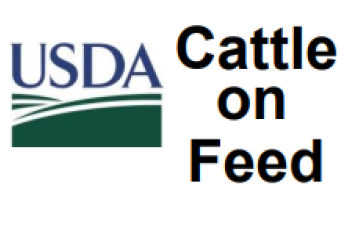Evening Report: March 10, 2022

Click here to view weekly export sales/commitments charts and here for report details.
Check our advice monitor on ProFarmer.com for updates to our marketing plan.
Russia/Ukraine update... Russia continued its heavy bombardment of Mariupol on Thursday. Russian forces also captured several Kyiv suburbs and attempted to take Chernihiv in the north. They were also advancing on the southern cities of Mykolaiv, Kryviy Rih, Voznesensk and Novovorontsovk. Russia’s deputy energy minister reported power had been restored to the Chernobyl nuclear plant. Efforts continued to evacuate civilians in eastern and southern Ukraine, including Mariupol and Kyiv’s suburbs. Kyiv’s mayor said about half of the population has left his city.
In the U.S., CIA director William Burns said Russian President Vladimir Putin did not appear to have a “sustainable” endgame in Ukraine and might soon try to find a way to end the fighting. Russian Foreign Minister Sergey Lavrov said Russia was ready for more negotiations but showed no sign of softening Moscow’s demands. European Union leaders meeting in Versailles, France, remained split on how strongly to push for a swift membership process for Ukraine.
During a televised meeting with Kremlin officials on Thursday, Putin said Western sanctions created challenges, but Russia would overcome them.
Goldman Sachs became the first major Wall Street bank to close its Russian operations. Citibank said it would start winding down its Russian operations. Austrian fossil-fuel company OMV AG canceled plans to sell its nitrogen business to EuroChem Group AG due to sanctions against its Russian founder.
Russia announces export bans... Russia started retaliating against Western sanctions by banning some commodity exports and equipment, according to Russia’s economy ministry. To secure its food supply, Russia will halt exports of wheat, meslin, rye, barley and corn to the Eurasian Economic Union (EEU) –Belarus, Kazakhstan, Armenia and Kyrgyzstan – until Aug. 31. Russia will also ban sugar exports until Aug. 31, but some exceptions would be possible for the EEU countries. Telecom, medical, auto, agricultural, electrical and tech equipment and some forestry product exports were also halted until the end of the year.
Russia is in the process of seizing assets from foreign companies that have exited the country. Other potential Russian actions include blocking foreign ships from Russian ports and preventing companies from repossessing foreign-owned jets from Russian airlines.
Bunge halts Russian exports... Bunge has suspended any new export business from Russia. However, the global grain trader plans to continue operating its oilseed crushing plant for the Russian domestic market. A company spokesperson said it is complying with all legal sanctions.
Ukraine will create a national food reserve... Ukraine’s government will establish a food reserve large enough for the country’s population and military, according to Prime Minister Denys Shmygal.
“The state will buy out grain and other food stocks in scope of the annual consumption throughout the country at the expanse of the state budget,” he said in a video address. “This will allow us to provide the country with sufficient foodstuffs."
Possible reduced planted acreage has raised food shortage concerns for Ukraine. The country typically starts spring fieldwork in late February or early March. Farmers are expected to plant in safe areas. However, there are fuel and seed supply shortage concerns.
Italy pushes for EU farm policy changes... The EU should delay the implementation of its Common Agricultural Policy (CAP) measures aimed at limiting production, waive state aid rules for agriculture and food sectors, allow the productive use of fallow areas and allow more irrigation, according to Stefano Patuanelli, Italy’s Agriculture Minister. Italy and Spain rely heavily on imports, especially corn from Ukraine, to feed livestock. Patuanelli explained his country could purchase more wheat from France and Germany.
Italian agriculture lobby Confagricoltura asked the European Commission to stop attempts at “food protectionism.” The group was referring to Hungary stopping wheat exports.
Egypt bans some food exports... Egypt will prohibit wheat, flour, pasta, lentils and fava bean exports for three months after the decree is officially published in the national gazette, according to Egypt’s trade ministry. The Egyptian government is also targeting to purchase up to 5.5 MMT of local wheat. However, the government warns citizens to “rationalize” their consumption. Egypt is trying to safeguard its food supply after the Russian invasion of Ukraine.
U.S. winter wheat drought area unchanged... The amount of U.S. winter wheat considered to be in drought conditions stayed at 73% for the week ended March 8, according to the U.S. Drought Monitor. USDA rated winter wheat drought as 19% “moderate,” 33% “severe,” 18% “extreme,” and 3% “exceptional." Last week, USDA said winter wheat drought was 22% “moderate,” 32% “severe,” 18% “extreme,” and 1% “exceptional.”
For HRW areas, the area considered abnormally dry/drought in Kansas dropped one point from the previous week to 99%. Texas had 96% of its area considered abnormally dry/drought, up three points. Montana decreased the area classified as abnormally dry/drought by three points to 89%. The amount of land classified as abnormally dry/drought in Oklahoma (92%), Nebraska (100%), South Dakota (82%) and Colorado (100%) remained the same.
In SRW areas, the abnormally dry/drought area in North Carolina increased by 15 points to 66%. Illinois had 28% of its area classified as abnormally dry/drought, up four points. Drought in Missouri decreased five points to 36%. Michigan (53%), Arkansas (41%), Ohio (0%) and Indiana (0%) had the same percentage of area considered abnormally dry/drought as the previous week.
U.S. inflation hits 40-year high... The all-items consumer price index (CPI) for February surged 7.9% from a year-ago, according to according the Bureau of Labor Statistics. It is the largest increase since January 1982. Economists predicted the February CPI would increase 7.8%. Core prices, which exclude food and energy components, rose 0.5% last month and 6.4% annually. The February CPI data showed that gasoline prices climbed 6.6% from the prior month and accounted for almost one-third of the monthly increase. Food prices climbed 1% from the preceding month and 7.9% higher from a year-ago. Grocery store prices rose 1.4% in February and were 8.6% higher on an annualized basis. Restaurant prices rose 0.4% in February and 6.8% from year-ago. The rise in grocery store prices was the largest 12-month increase since April 1981, while restaurant prices increased at the highest rate since December 1981.
USDA trade data delayed, again... USDA has again delayed the release of its U.S. Agricultural Trade Data Update that was initially scheduled to be released March 9. It is now scheduled to be released March 14. USDA said the delay was due to data transfer issues. The data is usually released the day after the broader International Trade in Goods and Services data is updated by the Census Bureau. But USDA’s Foreign Agricultural Service posted a notice on its Global Agricultural Trade System (GATS) site Tuesday that it was “experiencing technical issues” with uploading the January 2022 trade data.
Biden presses plan to encourage U.S. chip making... President Joe Biden met with executives from tech companies at the White House on Wednesday, as he promotes semiconductor chip manufacturing in the United States. He said passing the Bipartisan Innovation Act would ease the global chip shortage and make the economy more productive. Although chips were invented in the U.S., the country barely makes 10% of the world’s supply, putting us “at the mercy of shortages” that can close factories, Biden said. Michigan Gov. Gretchen Whitmer said the chip shortage cost North American auto makers the production of an estimated 2.2 million vehicles in 2021, driving up costs and jeopardizing jobs. The chips also raised automobile costs nationwide, contributing to inflation. The Senate and House have each passed their own versions of the Bipartisan Innovation Act. Biden urged House and Senate lawmakers to reconcile their legislative differences and “get it to my desk as quickly as you can.”
EPA restores California’s ability to set stricter clean car standards... EPA said Wednesday it would reinstate California’s authority to set its own clean car standards after the state’s authority was revoked by the Trump administration. The standards, which had been adopted by other states, are more stringent than federal standards and are expected to push the market toward electric vehicles.
Calls grow for pause in EPA WOTUS rulemaking... EPA and the U.S. Army Corps of Engineers are being urged by most of the House Republican delegation — 201 of 211 members — to pause their rulemaking efforts on Waters of the U.S. (WOTUS). The agencies have embarked on a two-step plan to revisit the WOTUS situation: First to put the definition of WOTUS back to pre-2015 levels with adjustments for court decisions, and second to set a new definition. This comes as the U.S. Supreme Court is mulling a case which involved WOTUS and that is part of the basis that the Republican lawmakers, including House Majority Leader Kevin McCarthy (R-Calif.) and others in the Republican leadership, are citing as a reason for the agencies to put their plans on hold until the nation’s top court rules. “Any future rulemaking must be based on fully informed legal guidance,” the lawmakers stated. “The Agencies’ goal of developing a lasting rule can only be achieved if appropriate legal standards are met, and it is premature to develop a new rule until the Court’s Sackett opinion is issued.”
EPA has also selected 10 regional roundtables out of several proposed by groups and organizations. EPA wants to use these roundtables to gather more input from stakeholders in various sectors on what the new definition of WOTUS should be.
WOTUS has remained a source of friction and controversy since the Obama administration put forth its more-restrictive definition in 2015 that was then replaced by the Trump administration via the Navigable Waters Protection Rule. With the changes being proposed by the Biden administration, this would make the sixth change in the definition of WOTUS in the last 10 years, increasing the level of uncertainty and potential costs faced by farmers, businesses and others as they seek to comply with an ever-changing regulation.
Land Real Estate Survey: 70% of brokers nationwide expect values to increase... National Land Realty’s 2022 survey of real estate brokers and agents showed there was a significant positive sales impact on the rural land real estate sector in 2021 with more than 70% of agents seeing an increase in land values. Recreational land and farmland led the way and are expected to continue that trend. The outlook for 2022 is also optimistic. For land value appreciation, almost 12% of brokers think it’ll be more than 10%, while 16.7% think land will increase by 6% to 10% and the largest group (41.7%) think it’ll increase by as much as 5%. Some 15.5% think land prices will remain the same and almost 6% think they could drop by as much as 5%.






